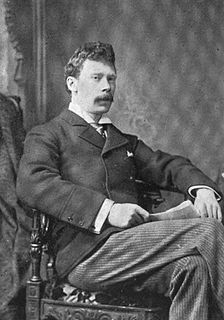A Quote by Tim Harford
Success Comes Through Rapidly Fixing our Mistakes Rather than Getting Things Right the First Time.
Related Quotes
I'm not getting it all sorted, she worried. I'm not getting it right. You are brilliant, the Voice reassured her. It is imperfect. So are all things trapped in time. You are brilliant, nonetheless. How fortunate for Us that We thirst for glorious souls rather than faultless ones, or We should be parched indeed, and most lonely in Our perfect righteousness. Carry on imperfectly, shining Ista.
My plea is that as we continue our search for truth, particularly we of the Church, that we look for strength and goodness rather than weakness and failings in those who did so great a work in their time. We recognize that our forefathers were human. They doubtless made mistakes. Some of them acknowledged making mistakes. But the mistakes were minor when compared with the marvelous work which they accomplished.
We all have those dreams of going back in time and seeing what it was like when our parents were younger. Maybe we don't all have that dream. I don't know. Getting to role play or step back to a different moment in time and see things through a different lens is something that resonated with me, for sure. We don't get to do that, generally, but when the right neurological disorder lines up with the right unstable woman, that moment presents itself. Getting to know where we come from is a really profound way of getting to look at who we are.
There's something that comes from mistakes. Maybe adventures involve treasure or something. I think the wrong turns are more important than the right ones. Most people don't go through life without making mistakes, but sometimes you meet someone who seems to hit all the marks. But they never seem to know very much. They have success and luck but no real wisdom.
I believe that our society's "mistake-phobia" is crippling, a problem that begins in most elementary schools, where we learn to learn what we are taught rather than to form our own goals and to figure out how to achieve them. We are fed with facts and tested and those who make the fewest mistakes are considered to be the smart ones, so we learn that it is embarrassing to not know and to make mistakes. Our education system spends virtually no time on how to learn from mistakes, yet this is critical to real learning.
Through our perceptual systems, we represent our surroundings, aiming to do so accurately, where the aiming is functional or teleological, rather than intentional. And the same goes for our functional beliefs. Through our judgments, however, we do intentionally, even consciously, attempt to get it right.
Long practise in driving a racing car at a hundred miles an hour or so gives first-class training in control and judging distances at high speed and helps tremendously in getting motor sense, which is rather the feel of your engine than the sound of it, a thing you get through your bones and nerves rather than simply your ears.
Those who wish to change things may face disappointment, loss, or even ridicule. If you are ahead of your time, people laugh as often as they applaud, and being there first is usually lonely. But our protection cannot come between us and our purpose. Right protection is something within us rather than something between us and the world, more about finding a place of refuge and strength than finding a hiding place.





































